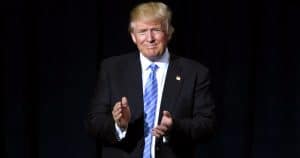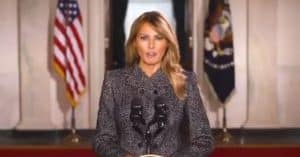Speculation Grows On Harris' VP Choice Favoring Governors Over Senators
The urgency from the Harris campaign stems from a specific Securities and Exchange Commission (SEC) rule that restricts donations from certain finance industry employees to campaigns including a sitting governor. This rule aims to prevent "pay-to-play" schemes, where contributions might influence political favors.
Donors Rush to Contribute Before Potential Restrictions
This call for quick action has convinced some in the financial sector that their window to contribute closes this Sunday. The potential running mates are rumored to include prominent governors like Andy Beshear of Kentucky, Josh Shapiro of Pennsylvania, and Tim Walz of Minnesota.
However, Harris has not confirmed her decision, stating to reporters simply "not yet" when asked about her choice. Senator Mark Kelly remains a strong contender, adding to the suspense and speculation.
Next week's campaign strategy includes Harris touring key swing states such as Pennsylvania, Wisconsin, Michigan, North Carolina, Georgia, Arizona, and Nevada with her yet-to-be-declared running mate, highlighting the campaign's strategic focus on pivotal regions.
Wall Street's Compliance With SEC Rules
In 2016, a similar scenario unfolded when Goldman Sachs restricted donations after Donald Trump selected a sitting governor as his running mate. The financial industry is keenly aware of these regulations, and compliance officers at various firms are likely to have already started imposing internal restrictions based on past precedents.
There remains uncertainty over whether these SEC rules also apply to super PACs or just to direct campaign contributions. Some national Democratic funds linked to the Harris campaign are expected to be exempt from these rules.
To mitigate any potential legal issues, the Harris campaign may consider imposing its own blanket restrictions on contributions from investors.
Campaign Spokesperson Calls Speculations Premature
A spokesperson for the Harris campaign has labeled any reports on the vice presidential selection as "premature and speculative." This statement aims to temper the rampant speculations swirling around potential VP candidates.
The choice of a running mate is a crucial decision for any presidential campaign, influencing both strategy and voter perception. The anticipation of Harris's decision is creating a buzz not only among potential donors but also within the broader political landscape.
As the campaign gears up for a vigorous tour through swing states, the implications of Harris's choice extend beyond immediate financial contributions to shaping the dynamics of the race in these critical battlegrounds.
Impact of VP Selection on Campaign Dynamics
The final decision, expected to be announced shortly before the campaign swing through the key states, will likely have significant strategic implications for the Harris campaign. The choice of a governor could leverage regional popularity and administrative experience, potentially galvanizing voter support in crucial areas.
Conversely, choosing a senator like Mark Kelly could emphasize national legislative experience and continuity in federal governance, appealing to a different voter base.
The strategic considerations are complex, involving both political calculations and compliance with financial regulations, highlighting the multifaceted nature of campaign decisions.
Final Thoughts as Campaign Decision Nears
The Harris campaign's push for early donations underlines the strategic maneuvers within political fundraising under regulatory constraints. It also underscores the importance of timing and strategic disclosures in presidential campaigns.
The choice of vice president not only affects campaign dynamics and potential regulatory impacts but also sends a strong signal about the campaign's priorities and policy direction moving forward.
As speculation mounts, the political world watches closely, awaiting the announcement that will set the tone for the remainder of the campaign season.
In conclusion, as the Harris campaign navigates complex regulatory and strategic landscapes, the upcoming vice presidential announcement is poised to be a pivotal moment in the 2024 presidential race, potentially shaping the future political and financial landscape.




